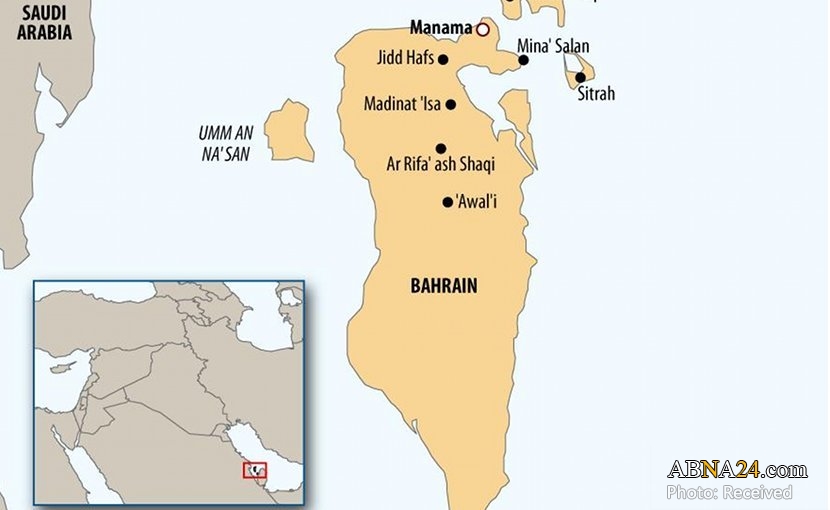(AhlulBayt News Agency) - Human Rights Watch called on the United States to reject two planned arms sales, totalling nearly $1 billion (746.49 million pounds), to Bahrain in light of the Gulf country’s “dismal record on human rights”, the rights group said on Thursday in a statement.
Last week, the U.S. approved a possible sale to Bahrain of 3,000 bomb bodies worth an estimated $45 million. In April, the State Department approved a possible sale of attack helicopters worth an estimated $911 million.
“These two weapons sales make clear that the Trump administration intends nothing short of a free pass on human rights for Bahrain,” said Sarah Margon, Washington director at Human Rights Watch.
A close U.S. and British ally, Al Khalifa-ruled Bahrain has cracked down on the opposition, hailing mostly from the Shi’ite Muslim majority, since it crushed pro-democracy demonstrations they led in 2011.
Rights groups have accused authorities of seeking to stamp out dissent.
“In the past year, Bahrain has sharpened its crackdown on activists, lawyers, and journalists,” Human Rights Watch said in a statement.
“It has arbitrarily revoked a record number of citizenships of nationals, carried out unfair trials of civilians in military courts, and harassed, intimidated, imprisoned, and prosecuted rights defenders and their family members.”
Bahrain is also a member of the U.S.-backed Saudi-led military coalition that intervened in Yemen in 2015 to try to restore Hadi’s government.
Yemen is grappling with one of the world’s worst humanitarian crises. The Saudi war on Yemen has killed more than 10,000 people, displaced three million, triggered a cholera outbreak and pushed the impoverished country to the verge of starvation, according to the United Nations.
Available information shows that Bahrain has participated in the military campaign. In March 2015, the Emirati State news agency reported that Bahrain had deployed 15 aircraft to take part in coalition operations and, in December 2015, a Bahraini F-16 jet carrying out coalition operations crashed in Saudi Arabia, the coalition said in a statement.
The human rights situation in Bahrain continues to deteriorate as the government increased a crackdown on critics. The country’s preeminent human rights defenders were either jailed or exiled as the judicial authorities handed down long prison sentences to dissidents accused of speech crimes in trials that did not meet basic due process standards. The government failed to credibly investigate and prosecute officials and police officers who allegedly committed violations, including torture since 2011. Authorities also use excessive and deadly force to disperse peaceful protests, and forcibly disappear people, and hold them in incommunicado detention.
On May 25, 2017, security forces apparently violently raided a sit-in in the village of Diraz. Five demonstrators died and dozens more were injured.
Bahraini authorities have, since 2012, arbitrarily revoked the citizenship of at least 728 citizens, including human rights defenders, political activists, journalists, and religious scholars, and subjected some of them to arbitrary deportations, according to the Bahrain Institute for Rights and Democracy (BIRD), a nongovernmental organization. The vast majority of Bahraini citizens stripped of their citizenship are left effectively stateless and are not given adequate opportunity to meaningfully appeal these rulings.
Authorities in 2017 shut down the country’s only independent newspaper and suspended the activities of the leading secular-left opposition political group Wa’ad. On May 13, 2018, Bahrain’s parliament approved a law barring members of dissolved opposition groups from running in general elections planned for the end of 2018.
The Bahraini government also reversed two of the few previously implemented substantive recommendations of the Bahrain Independent Commission of Inquiry (BICI), was established after the 2011 anti-government demonstrations. Authorities in January 2017 restored arrest and investigation powers to the National Security Agency, despite its record of torture during interrogation. And in April 2017, Bahrain’s ruler signed legislation authorizing the trial of civilians before military courts, which contravenes international law.
“Bahrain’s backsliding on human rights should not be rewarded with arms sales that could further entrench repression in Bahrain,” Margon said.
The human rights situation in Bahrain continues to deteriorate as the government increased a crackdown on critics. The country’s preeminent human rights defenders were either jailed or exiled as the judicial authorities handed down long prison sentences to dissidents accused of speech crimes in trials that did not meet basic due process standards. The government failed to credibly investigate and prosecute officials and police officers who allegedly committed violations, including torture since 2011. Authorities also use excessive and deadly force to disperse peaceful protests, and forcibly disappear people, and hold them in incommunicado detention.
On May 25, 2017, security forces apparently violently raided a sit-in in the village of Diraz. Five demonstrators died and dozens more were injured.
Bahraini authorities have, since 2012, arbitrarily revoked the citizenship of at least 728 citizens, including human rights defenders, political activists, journalists, and religious scholars, and subjected some of them to arbitrary deportations, according to the Bahrain Institute for Rights and Democracy (BIRD), a nongovernmental organization. The vast majority of Bahraini citizens stripped of their citizenship are left effectively stateless and are not given adequate opportunity to meaningfully appeal these rulings.
Authorities in 2017 shut down the country’s only independent newspaper and suspended the activities of the leading secular-left opposition political group Wa’ad. On May 13, 2018, Bahrain’s parliament approved a law barring members of dissolved opposition groups from running in general elections planned for the end of 2018.
The Bahraini government also reversed two of the few previously implemented substantive recommendations of the Bahrain Independent Commission of Inquiry (BICI), was established after the 2011 anti-government demonstrations. Authorities in January 2017 restored arrest and investigation powers to the National Security Agency, despite its record of torture during interrogation. And in April 2017, Bahrain’s ruler signed legislation authorizing the trial of civilians before military courts, which contravenes international law.
“Bahrain’s backsliding on human rights should not be rewarded with arms sales that could further entrench repression in Bahrain,” Margon said.

